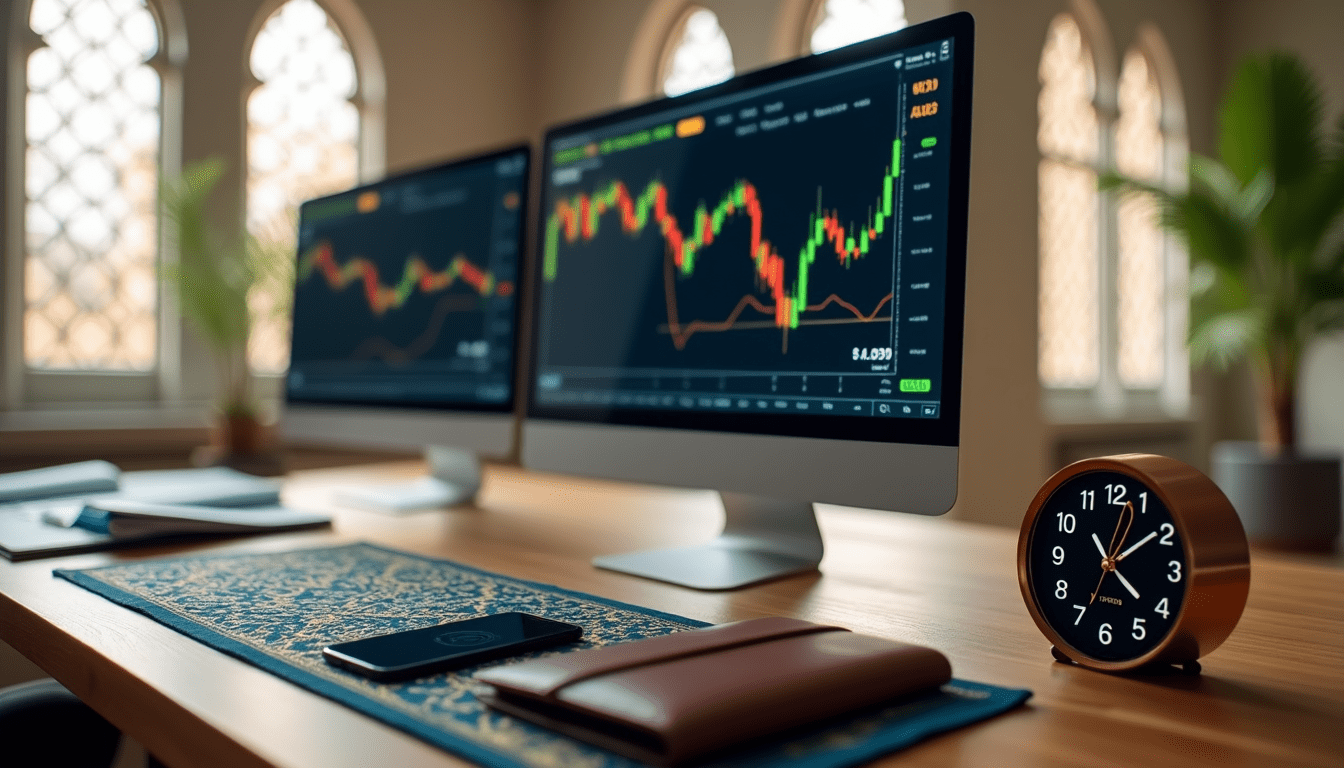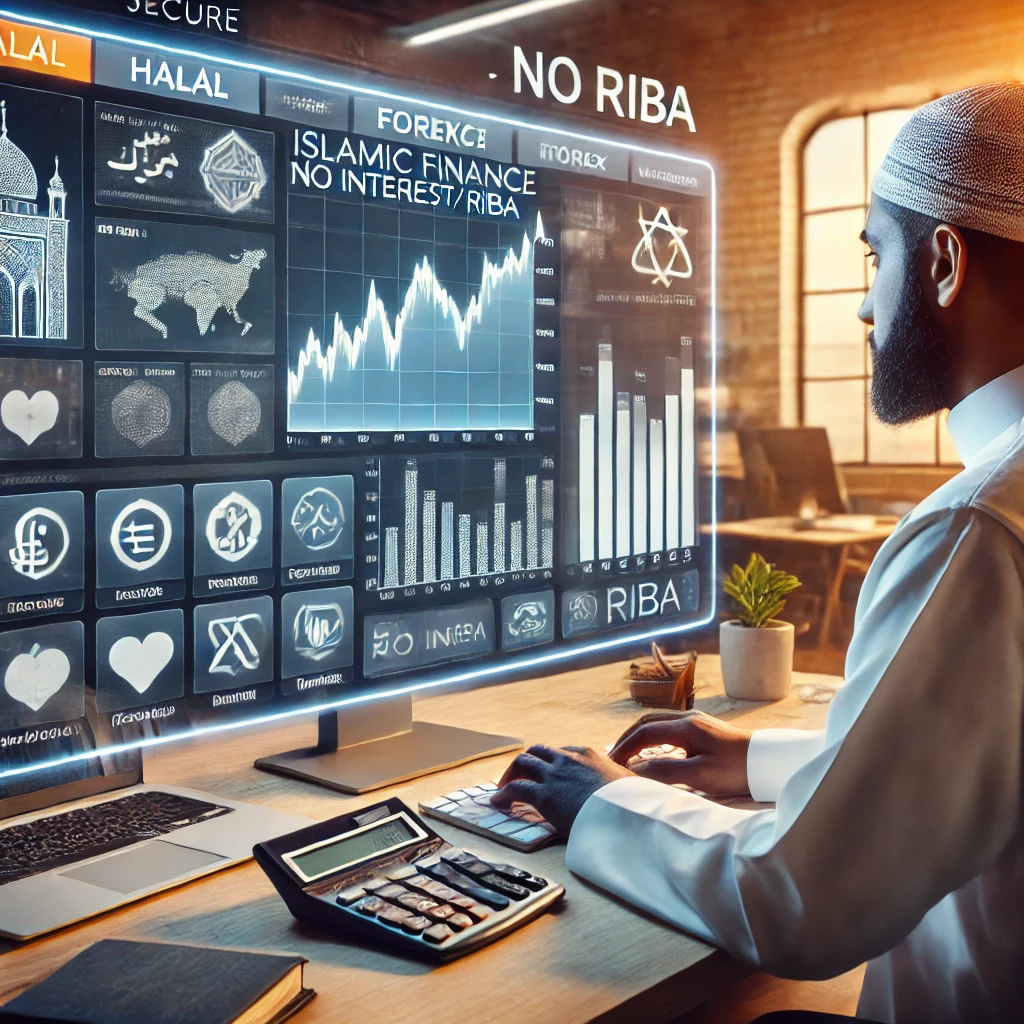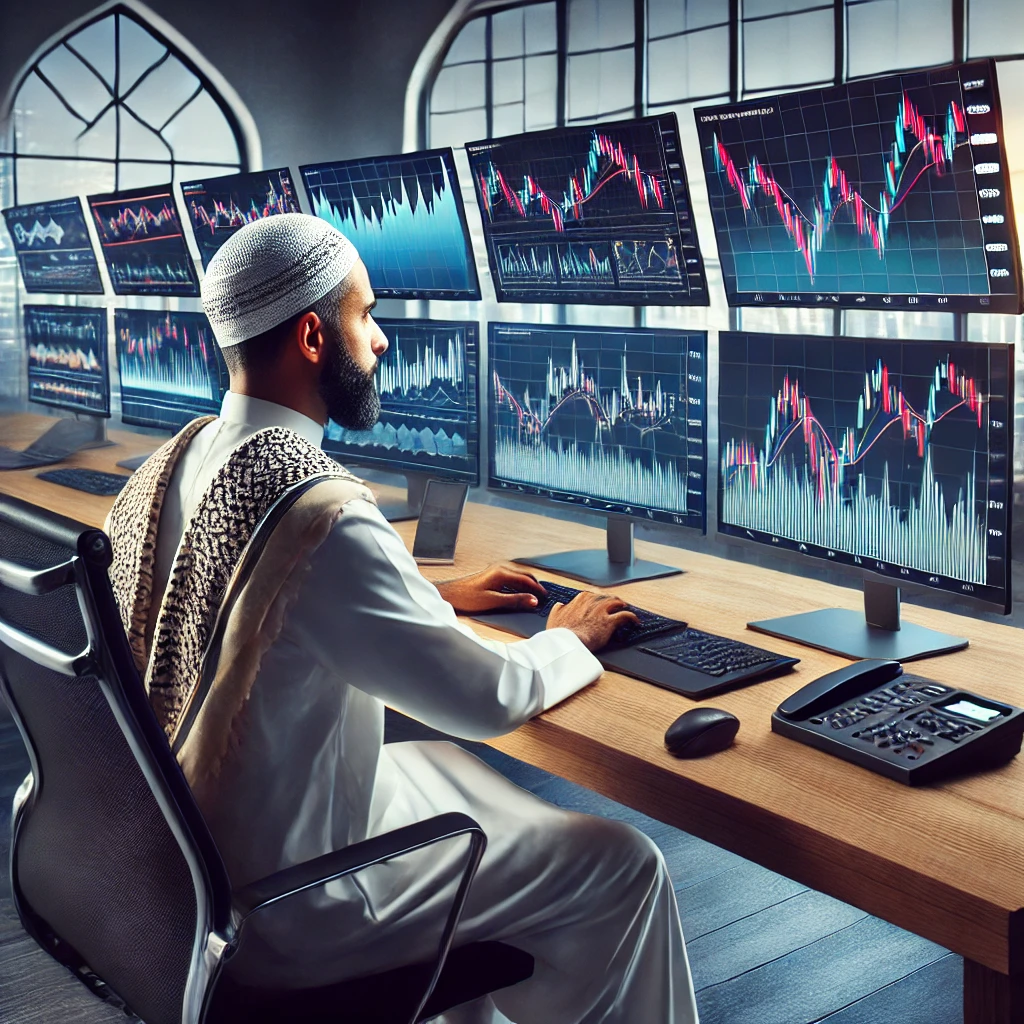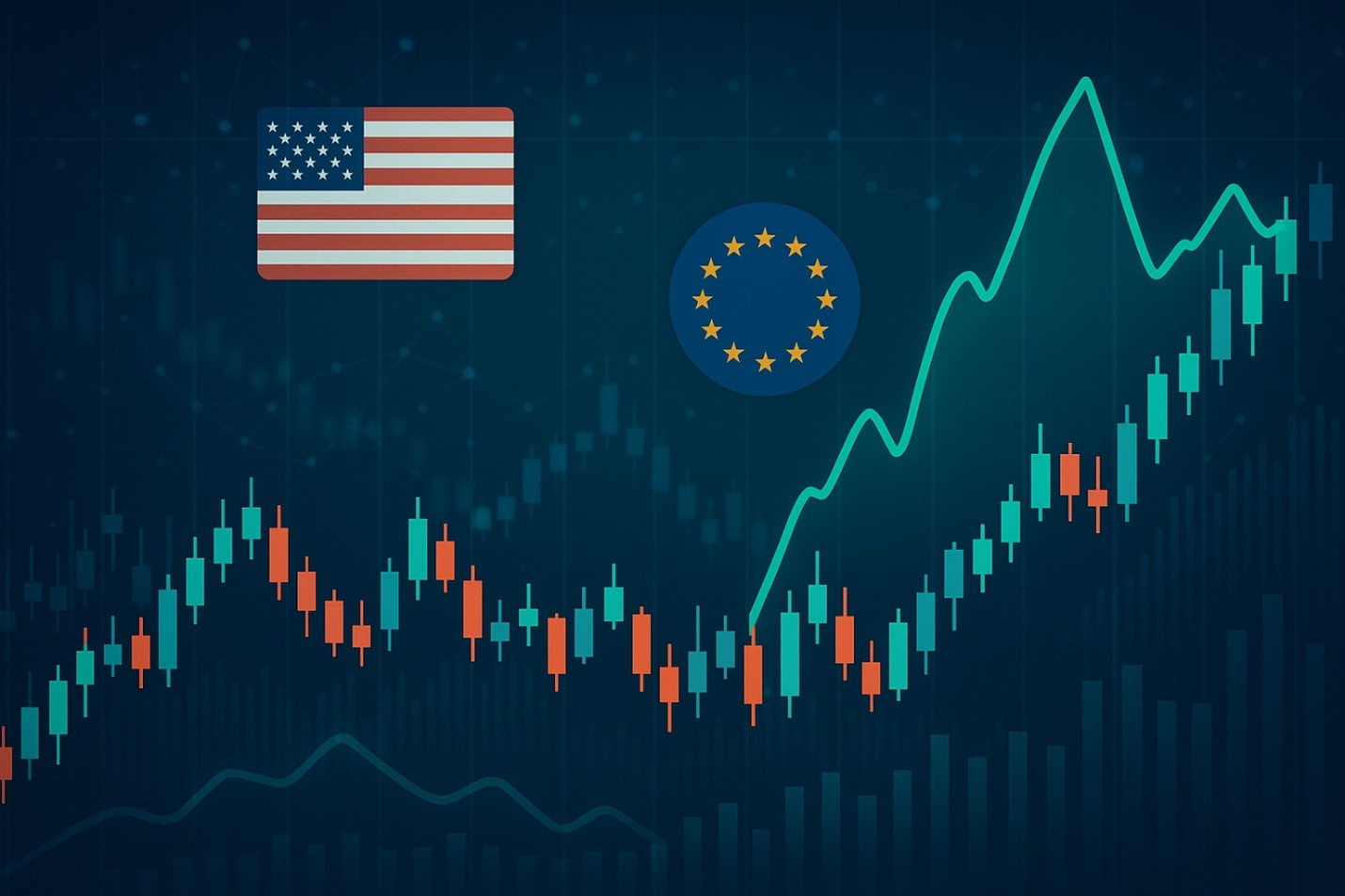Muslim traders often ask if forex trading is halal. The question matters a lot since Muslims make up a quarter of the world’s population. The forex market runs 24 hours daily for 5 days each week and offers great opportunities to Muslim traders who want their investments to follow Sharia principles.
Forex trading can be halal if it follows specific Islamic guidelines. Muslim-majority countries like Saudi Arabia, UAE, and Malaysia allow forex trading under Sharia-compliant regulations. Platforms such as United Kings (https://unitedkings.net/) offer halal trading options that stay away from interest (riba), gambling, and too much speculation.
This piece explains the four main principles of Islamic finance that allow forex trading. You’ll learn how spot trading fits with Sharia law and discover Islamic trading accounts that use compliant alternatives instead of regular interest charges. The information helps both new traders and experienced ones to arrange their trading with Islamic principles. You’ll get clear, practical knowledge about halal forex trading.

Understanding Islamic Finance Principles in Modern Trading
Islamic finance offers a unique way to manage money that differs from regular banking systems. Muslim traders can now use platforms like United Kings (https://unitedkings.net/) to access financial services that follow Islamic principles while they trade in the global forex market.
Core principles of halal trading
Four key pillars are the foundations of Islamic finance that guide all money-related activities [1]. The ban on interest makes sure earnings come from genuine trade instead of passive income. All trades must happen right away with direct exchanges. Gambling and too much speculation remain off-limits. Both sides must share risks and profits equally.
These guidelines want to build a financial system that focuses on ground economic activities rather than speculation [2]. It also pushes for asset-backed financing, so financial contracts stay tied to real assets or services.
Muslim traders should stay away from businesses that go against Islamic values [3]. They need to avoid companies that deal with:
- Gambling operations
- Alcohol production
- Tobacco products
- Pork-related industries
The concept of riba in forex
Riba, which means interest or usury, plays a crucial role in Islamic finance [4]. The Quran bans riba because it creates unfair advantages between lenders and borrowers. Islamic scholars recognize two types of riba:
- Riba al-Nasiyah: Interest charged in loan contracts
- Riba al-Fadl: Unequal exchanges in sale contracts
Regular forex trading usually charges swap fees and overnight interest, which goes against Islamic principles [2]. Muslim traders can still take part in currency exchange without riba-based transactions through special Islamic forex accounts.
Islamic banking sees money as a tool to measure value rather than an asset [5]. This makes equity financing acceptable when businesses follow Sharia principles. Trading activities can help the economy grow while sticking to ethical standards [3].
The Islamic financial system puts protecting society ahead of profit [6]. The ban on interest-based deals encourages charitable lending and fair economics. This system showed strength during global financial crises because it focused on ground economic activities and shared risks [7].
Muslim traders can use platforms like United Kings to access halal trading options. These replace regular interest charges with Sharia-compliant structures. Such alternatives ensure fair trades while meeting Islamic finance standards [8].

How Forex Trading Can Be Halal
Muslim traders can access Sharia-compliant forex trading solutions that respect Islamic principles through platforms like United Kings (https://unitedkings.net/). Let’s see how forex trading fits with Islamic guidelines and stays halal under specific conditions.
Spot trading and immediate settlement
Spot trading stands out as the main method for halal forex transactions. The process involves direct currency exchange that settles within two business days [9]. This approach matches Islamic principles because traders own currencies right away and face no uncertainty in their transactions [10].
Muslim traders gain several benefits from spot transactions:
- Direct currency exchanges without speculation
- Clear ownership of traded assets
- Transparent pricing mechanisms
- Immediate settlement of trades
Islamic trading accounts
Islamic trading accounts, also called swap-free accounts, give Muslim traders specialized solutions [11]. These accounts remove elements that clash with Sharia law, especially when dealing with interest-based transactions. Traders can access accounts that follow Islamic principles while taking part in global currency markets through brokers like United Kings.
These accounts have specific features that keep them halal:
The removal of overnight swap fees ensures they follow Islamic finance principles [12]. Brokers might use different fee structures that stay Sharia-compliant instead of charging interest [11]. Islamic accounts also bring transparency to financial markets and help traders stick to their religious values [11].
Avoiding interest-based transactions
Muslim traders must stay away from interest-based transactions to keep forex trading halal. Islamic accounts achieve this by removing swap fees for overnight positions [8]. Many brokers limit swap-free periods to five days, and traders should know this [11].
Key factors Muslim traders should look for in a broker:
- Real Islamic accounts, not just temporary swap-free options
- Clear fee structures with no hidden interest charges
- Quick trade execution
- No rollover interest
Islamic accounts often have slightly higher spreads on currency pairs [11]. Brokers use this adjustment to stay profitable while following Sharia principles. Traders should read all terms and conditions carefully before they open an account.
Some brokers use administrative fees or commissions instead of traditional interest charges [13]. Many Islamic scholars approve this method even though it might seem like interest. This approach makes trading easier while staying true to religious principles [8].
Muslim traders can enter markets without going against their religious beliefs through platforms like United Kings. These accounts make sure all transactions stay within Islamic law, which means forex trading becomes halal when done right and through proper channels.
Setting Up a Halal Forex Trading Account
Muslim traders need to think about several factors while setting up a halal forex trading account that aligns with Islamic principles. Platforms like United Kings (https://unitedkings.net/) give Muslim traders access to Sharia-compliant trading solutions that honor their religious values.
Choosing the right broker
You need to find brokers that offer genuine Islamic accounts. Not all brokers provide these specialized services [12], so picking the right broker is vital for halal trading. Here are the significant factors you should evaluate:
- Regulatory Status: Pick brokers regulated by respected authorities like FCA, CySEC, or ASIC [14]. This protects your funds and keeps trading practices transparent.
- Account Features: Look for brokers that offer raw spread and standard account types that work with Islamic trading principles [12]. These accounts should have competitive spreads and reliable trading tools.
- Trading Platforms: Reliable brokers support popular platforms like MetaTrader 4, MetaTrader 5, and cTrader [12]. You can set up these platforms for halal trading without losing any features.
Account verification process
After picking your broker, here’s how you set up your account:
- Initial Registration: Register on the broker’s platform and select the Islamic account option [15]. Some brokers might ask you to open a standard account first and convert it later.
- Document Submission: Provide your identification documents for KYC (Know Your Customer) verification [15]. Brokers might need these additional documents:
- Valid ID proof
- Proof of residence
- Religious documentation [16]
- Account Conversion: If you start with a standard account, ask customer support to convert it to an Islamic account [16]. Some brokers handle this automatically during registration.
- Account Confirmation: The broker will verify and confirm your Islamic account status [8]. This step ensures your account follows Sharia principles.
- Platform Setup: After approval, you can access your trading platform and set it up based on Islamic trading priorities [8].
The broker’s terms and conditions for Islamic accounts need your attention [15]. Brokers might have specific rules:
- Time limits on swap-free periods
- Minimum deposit requirements
- Position holding restrictions
- Regional availability limits [1]
United Kings excels by offering dedicated Islamic trading accounts that put Muslim traders first. Their platform keeps all transactions halal while offering competitive trading conditions.
Check the complete fee structure since Islamic accounts might have different costs instead of traditional swap fees [1]. These might include:
- Administrative fees for overnight positions
- Wider spreads on certain currency pairs
- Commission-based charges
- Platform-specific fees
By doing this and being systematic in your approach with trusted brokers like United Kings, you can trade confidently in forex markets while staying true to your religious principles. Success comes from good research and partnering with brokers who understand and respect Islamic financial requirements.
Essential Trading Strategies for Halal Forex
Muslim traders need a thorough grasp of strategies that respect Islamic principles to succeed in forex trading. Trusted platforms like United Kings (https://unitedkings.net/) provide halal trading options that honor religious values and maximize market opportunities.
Day trading within Islamic principles
Day trading emerges as one of the best approaches for halal forex trading. This strategy lets traders open and close positions in a single trading session [8]. Traders naturally avoid overnight positions that could incur interest charges when they complete trades before the market closes.
Muslim traders benefit from day trading in several ways:
- Immediate settlement of transactions
- Natural avoidance of swap fees
- Clear ownership of traded assets
- Reduced uncertainty in market movements
Muslim traders control assets even before physical settlement through constructive ownership principles [17]. This concept enables legitimate trading activities while staying Sharia compliant.
Risk management in halal trading
Risk management serves as the life-blood of ethical trading practices in Islam. Muslim traders should avoid excessive speculation and trade responsibly [18]. Platforms like United Kings give traders tools to implement sound risk management strategies.
Key risk management principles include:
- Using moderate leverage to minimize uncertainty
- Setting clear stop-loss levels
- Implementing take-profit orders
- Avoiding gambling-like behaviors
Islamic finance prioritizes capital protection over profit maximization [19]. This principle encourages traders to take conservative approaches that value long-term sustainability over quick gains.
Position sizing guidelines
Position sizing plays a vital role in effective forex trading account management [20]. Muslim traders maintain ethical trading practices and protect capital through appropriate position sizing.
These essential guidelines help:
Your portfolio risk exposure should not exceed 2% on any single trade [20]. Position sizes should reflect your personal risk tolerance and account equity. Your trading strategy must withstand potential consecutive losses without excessive drawdown.
Position sizing calculations depend on:
- Account equity
- Risk tolerance levels
- Market volatility
- Stop-loss placement
- Entry price points
Muslim traders access markets through Islamic trading accounts without compromising their religious principles [19]. These accounts remove interest-based transactions while offering competitive trading conditions. Day trading strategies paired with proper position sizing create a resilient framework for halal forex trading.
Muslim traders can participate in forex markets while following Islamic principles when they trade through reputable platforms like United Kings. Successful halal trading combines technical expertise with ethical considerations to create a balanced approach to financial markets.
Common Misconceptions About Halal Trading
Muslim traders often face confusion about halal forex trading. United Kings (https://unitedkings.net/) offers authentic Sharia-compliant solutions that help clear up these misunderstandings. Let’s get into these misconceptions to help traders find halal trading opportunities.
Understanding leverage in Islamic context
People often think leverage makes forex trading haram. The truth is that leverage doesn’t automatically involve interest or Riba [2]. The real difference lies in how brokers set up leverage and their fee structure.
Here’s what you should know about leverage in Islamic trading:
- Responsible use of leverage without interest charges makes it permissible [3]
- Islamic accounts use fixed administrative charges instead of traditional interest fees [9]
- The traded asset must be halal, like currency pairs or commodities [3]
Muslim traders need to be careful though. The Islamic Fiqh Council points out that mixing loans with brokerage services needs thorough evaluation [2]. United Kings’ Islamic trading accounts give Muslims access to leverage that follows Sharia principles, which keeps their trading activities halal.
Clearing doubts about overnight positions
Many traders believe overnight positions in forex trading go against Islamic principles. The actual situation has more layers to it.
Swap-free accounts created for Muslim traders solve these issues by:
- Taking out interest charges on overnight positions [21]
- Using different fee structures instead of swap rates [21]
- Making sure trades happen right away [22]
Islamic scholars highlight that spot trading with instant settlement lines up with Sharia principles [22]. United Kings’ Islamic accounts let traders hold positions without interest, making forex trading halal with proper execution.
Some people wrongly think Islamic accounts are just renamed conventional trading services. In stark comparison to this, these accounts work differently at their core [4]. They remove all interest-based transactions and replace them with alternatives that respect Muslim values.
A common myth suggests Islamic trading can’t make good profits [4]. The reality shows halal trading can be very profitable if you use good strategies and manage risks well. Ethical investing often helps traders stay more disciplined [4].
Many traders assume Islamic accounts cost more [4]. While some brokers might charge differently, many Islamic accounts cost about the same as regular ones. The secret is finding trusted brokers like United Kings who stay open about their fees.
Islamic trading accounts don’t need you to be an expert in Islamic law [4]. Understanding simple principles helps, but brokers usually give you the guidance you need. This makes it easy for Muslim traders to work in forex markets while staying true to their religious values.
Conclusion
Muslim traders can confidently engage in forex trading as a legitimate investment option that follows Islamic principles. Specialized Islamic trading accounts eliminate interest-based transactions and excessive speculation. This allows Muslims to participate in currency markets while staying true to their religious values.
The belief that forex trading is haram often comes from confusion about leverage and overnight positions. These aspects become permissible when properly structured through Sharia-compliant accounts. United Kings (https://unitedkings.net/) provides specialized Islamic accounts that respect and uphold Muslim values, making it a reliable choice for traders seeking halal solutions.
Halal forex trading demands careful risk management, proper position sizing, and day trading strategies that naturally avoid interest-bearing situations. Generating profits through ethical means perfectly matches Islamic principles. This makes forex trading a viable option for those who want financial opportunities within their faith’s boundaries.
The right combination of a suitable broker and disciplined trading practices that match religious values and sound financial principles leads to success. Muslim traders can now participate in forex markets with confidence. Their activities remain halal as they pursue their financial goals with the right tools and understanding.
FAQs
Q1. Is forex trading permissible in Islam? Forex trading can be permissible in Islam when conducted according to specific guidelines. It must involve spot trading with immediate settlement, avoid interest-based transactions, and use Islamic trading accounts that eliminate elements conflicting with Sharia law.
Q2. How can Muslims engage in halal forex trading? Muslims can engage in halal forex trading by using Islamic trading accounts, focusing on spot trading with immediate settlement, avoiding overnight positions that may incur interest, and treating forex as a business rather than a form of gambling.
Q3. What are Islamic forex trading accounts? Islamic forex trading accounts, also known as swap-free accounts, are specially designed to comply with Sharia law. They eliminate interest-based transactions, swap fees, and other elements that may conflict with Islamic principles while still allowing participation in currency markets.
Q4. Is leverage allowed in Islamic forex trading? Leverage can be permissible in Islamic forex trading when used responsibly and without involving interest charges. Some Islamic accounts replace traditional interest fees with fixed administrative charges to maintain compliance with Sharia principles.
Q5. How does day trading align with Islamic principles in forex? Day trading aligns well with Islamic principles in forex as it involves opening and closing positions within the same trading session. This approach naturally avoids overnight positions that might incur interest charges and ensures immediate settlement of transactions.
References
[1] – https://brokerchooser.com/best-brokers/best-forex-brokers/best-forex-brokers-for-islamic-accounts
[2] – https://islamqa.info/en/answers/303336/ruling-on-dealing-with-forex-and-avoiding-leverage
[3] – https://www.dailyforex.com/forex-articles/is-leverage-trading-halal/216133
[4] – https://www.markets.com/education-center/common-misconceptions-about-islamic-trading-clearing-the-air-ar/
[5] – https://www.investopedia.com/articles/07/islamic_investing.asp
[6] – https://www.dlapiper.com/en-us/insights/publications/middle-east-initiative-series/2023/understanding-sharia-transactions
[7] – https://academy.iccwbo.org/trade-finance/article/an-introduction-to-islamic-finance-and-its-impact-on-trade/
[8] – https://admiralmarkets.com/education/articles/general-trading/islamic-forex-trading-account
[9] – https://www.dailyforex.com/forex-articles/is-forex-halal-or-haram-in-islam/218009
[10] – https://www.hyrotrader.com/halal-crypto-spot-trading-guide-for-muslim-traders/
[11] – https://www.avatrade.com/trading-info/islamic-account
[12] – https://www.icmarkets.com/global/en/trading-accounts/islamic-account
[13] – https://learn2.trade/is-forex-trading-halal
[14] – https://www.benzinga.com/money/forex-islamic-accounts
[15] – https://www.benzinga.com/money/what-is-an-islamic-forex-account
[16] – https://witzeltrading.com/broker/islamic-accounts/
[17] – https://academy.musaffa.com/what-you-should-know-about-day-trading-in-islam/
[18] – https://www.stptrading.io/blog/is-forex-trading-halal/
[19] – https://www.investing.com/brokers/guides/forex/islamic-forex-accounts-exploring-the-world-of-sharia-compliant-forex/
[20] – https://paxforex.org/forex-blog/position-sizing-in-forex-trading
[21] – https://www.fxem.com/en/trading/trading-conditions/overnight-positions
[22] – https://islamqa.info/en/answers/327070/ruling-on-subscribing-to-islamic-accounts-in-forex




